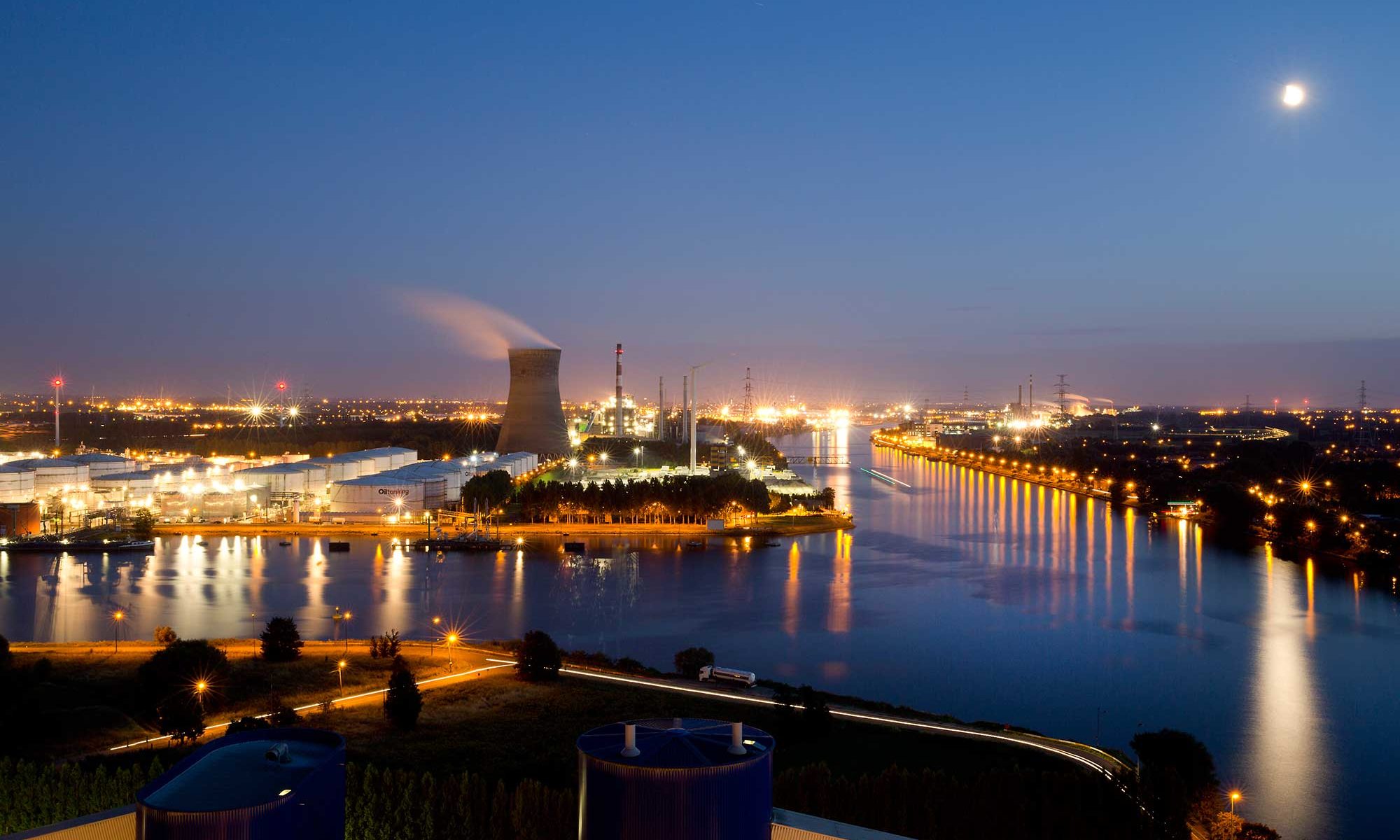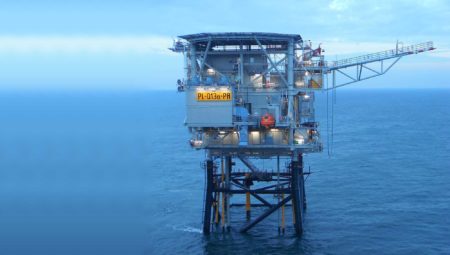North-C-Methanol will be the first large-scale demo plant as part of the North-CCU-Hub program, immediately generating an investment of € 140 million. The project provides for the construction of two large-scale demo plants and supporting infrastructure on the Rodenhuize peninsula in North Sea Port.

Hydrogen plant
The first installation, a 65 megawatt electrolyser, will be erected on ENGIE’s sites. This hydrogen plant will convert water into green hydrogen and oxygen via wind energy and has a capacity that is 6 times larger than the largest system currently active worldwide.
Cedric Osterrieth, ENGIE’s director of thermal activities in Europe, says the location is a logical choice. “We already have a direct high-voltage grid connection with renewable energy, extracted from the wind in the North Sea. We can use that energy to produce hydrogen, which in turn can serve as a sustainable raw material.”
North-CCU-Hub provides for a gradual upscaling of the North-C-Methanol capacity from 65 MW in 2024 to 600 MW in 2030.
Methanol plant
The second installation, a Proman methanol plant on the Rodenhuize peninsula, will use this green hydrogen to convert the captured CO2 emissions of large local industrial players such as ArcelorMittal, Alco Bio Fuel and Yara into green methanol. The local chemical industry and renewable fuel industry, to which Cargill belongs, uses the methanol as a green raw material and/or as green fuel for ships and trains. “Green methanol represents a significant opportunity to bridge the gap from fossil to renewable energy,” said David Cassidy, CEO of Proman.
All by-products of methanol production such as oxygen, heat and water are also reused locally. This ensures a unique and far-reaching industrial and circular integration. This is accompanied by the construction of supporting infrastructure, such as new pipelines and storage tanks. Fluxys and Oiltanking will be responsible for this. Mitsubishi Power ensures the integration and coordination of the entire construction process.
Flanders frontrunner
“This project shows why we can become a leader in sustainable innovation with Flanders. With our ports and industry, we are ideally positioned to invest in a circular and sustainable industry. It ensures sustainable growth and new jobs and with these types of projects we are making a leap forward towards a resilient Flanders. Moreover, it is also a step in the direction of becoming less dependent on fossil raw materials from abroad,” said Flemish Deputy Prime Minister Hilde Crevits.
In the Ghent part of North Sea Port, there are a lot of industrial CO2 emissions that can be captured, a high-voltage connection and there are many potential buyers of green methanol. “With this collaboration we strengthen our position in the field of the circular economy that we already have in the port,” says North Sea Port CEO Daan Schalck. “The port also has extensive logistics activities, an enormous storage capacity and connections by sea, inland shipping, rail and road.” In addition, a strong knowledge cluster around chemical (bio) technology is present within the North CCU Hub. The city of Ghent and the Province of East Flanders are helping to facilitate the project. PMV supports the financial part.
An innovation program in which new technologies, markets and products such as ammonia, formic acid, fatty acids, esters and proteins will be gradually developed and integrated. Knowledge partners UGent, Bio Base Europe Pilot Plant, CAPTURE and the Flemish spearhead clusters Catalisti and Flux50 give shape to these innovation processes.
New value chains
The North-CCU-Hub program is aimed at building new value chains in North Sea Port using CO2 as a raw material within a bio-based economy. The ambition is to achieve a total annual emission reduction of 1 million tons of CO2 in the long term. The partnership includes players from various sectors: steel (ArcelorMittal), energy (ENGIE, Terranova Solar), new raw materials (Renewi), chemicals (Cargill, Eastman, Oleon, AlcoBioFuel), logistics (Fluxys, Oiltanking) and transport (Anglo Belgian Corporation ). Local and regional authorities (City of Ghent, Province of East Flanders, POM East Flanders) and the port company North Sea Port support the whole together with knowledge and innovation partners (UGent, Bio Base Europe Pilot Plant, CAPTURE, Catalisti and Flux50) and investment partner PMV.
Images: North Sea Port



